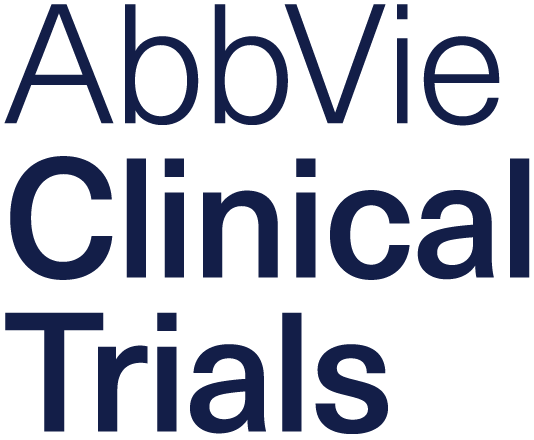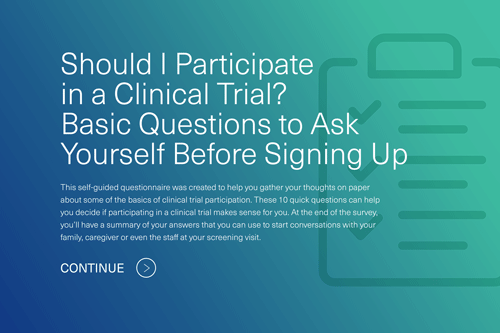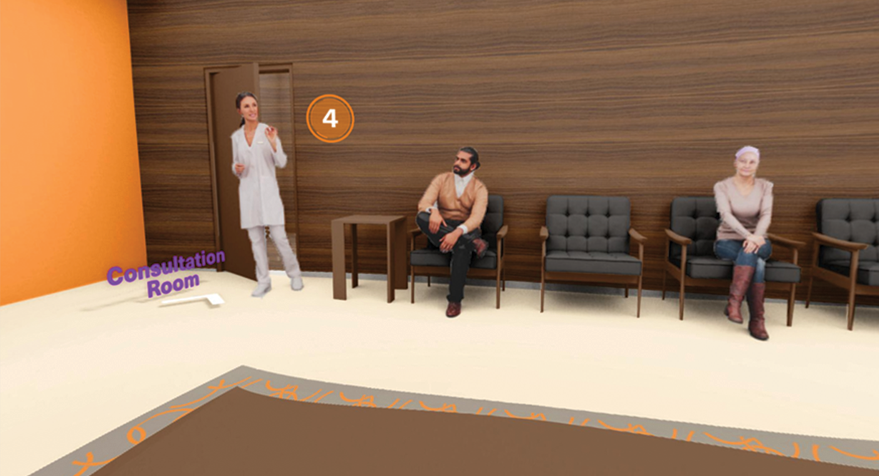Choosing to join a clinical trial is a very personal decision. Some patients want to be proactive about their condition; some want the opportunity to share valuable insights about their condition with researchers in order to help others who are going through the same thing. Ultimately, the goal of all clinical trials is to determine if a new test or treatment is effective and safe.1
Ensuring that this goal is reached is a complex process. There are many steps and people involved in the trial to assure that data is collected from participants in a confidential way and that participants are informed of the risks and benefits of participating in a research study prior to enrollment, during the study, and after the completion of a clinical trial.
WHAT TO CONSIDER ABOUT CLINICAL TRIALS
So, you may be wondering what to consider about clinical trials and what are all the possible risks and benefits of participating in a research study? This will depend on the specific trial you enroll in, the specific research plan, or protocol, and many other factors. It is critical to talk to your doctor to learn about all the benefits and risks associated with your specific trial. However, there are some general risks and benefits to being a part of clinical trial, and they can be as diverse as the reasons why people choose to participate.
The benefits of medical research include:
The opportunity to play an active role in your own healthcare
Access to an expert team that can give you a deeper understanding of your condition
Access to new research, or investigational medications
Additional care/tests specific to the trial
The knowledge that you’re helping others
Any medical treatment carries potential risk, and clinical trials are no exception. Trial participants should be mindful of the chance of harm occurring, or the degree of harm. Talk with your doctor if you are thinking about joining a clinical trial.
The risks of medical research include:
Possible side effects from the medication, from minor and unpleasant to serious complications requiring medical attention
Finding the trial more demanding and time-consuming than regular care
Being required to alter or abstain from the treatment you were receiving prior to the trial
Discomfort associated with additional medical tests and procedures
The risks and benefits of medical research studies vary from one trial to another. Ask the clinical trial’s staff which of the benefits and risks above may apply to the trial you are considering.
To learn more about the clinical trial safety, read Are clinical trials safe?
PAID CLINICAL TRIALS: WILL YOU GET PAID FOR PARTICIPATING IN A CLINICAL TRIAL?
One common question that many participants have asked when considering whether or not to join a certain trial is if they will get paid. The answer to this question depends on the type of clinical trial they are considering. Participants are not paid for participation in phase 2, 3 and 4 clinical trials. Phase 1 trials in healthy volunteers may provide compensation to study participants. Please discuss with the study team.
Conversely, many participants ask if they will have to pay anything to be a participant in a trial. While you do not have to pay directly for anything related to the trial, you may have some indirect costs. The test drug or investigational treatment in a clinical trial is generally free of charge. Some costs you might need to consider are for travel (such as to and from the research site), childcare, and lost income (if any) due to time away from work. A clinical research coordinator can help you determine your costs over the full trial period and which costs may be reimbursed.



